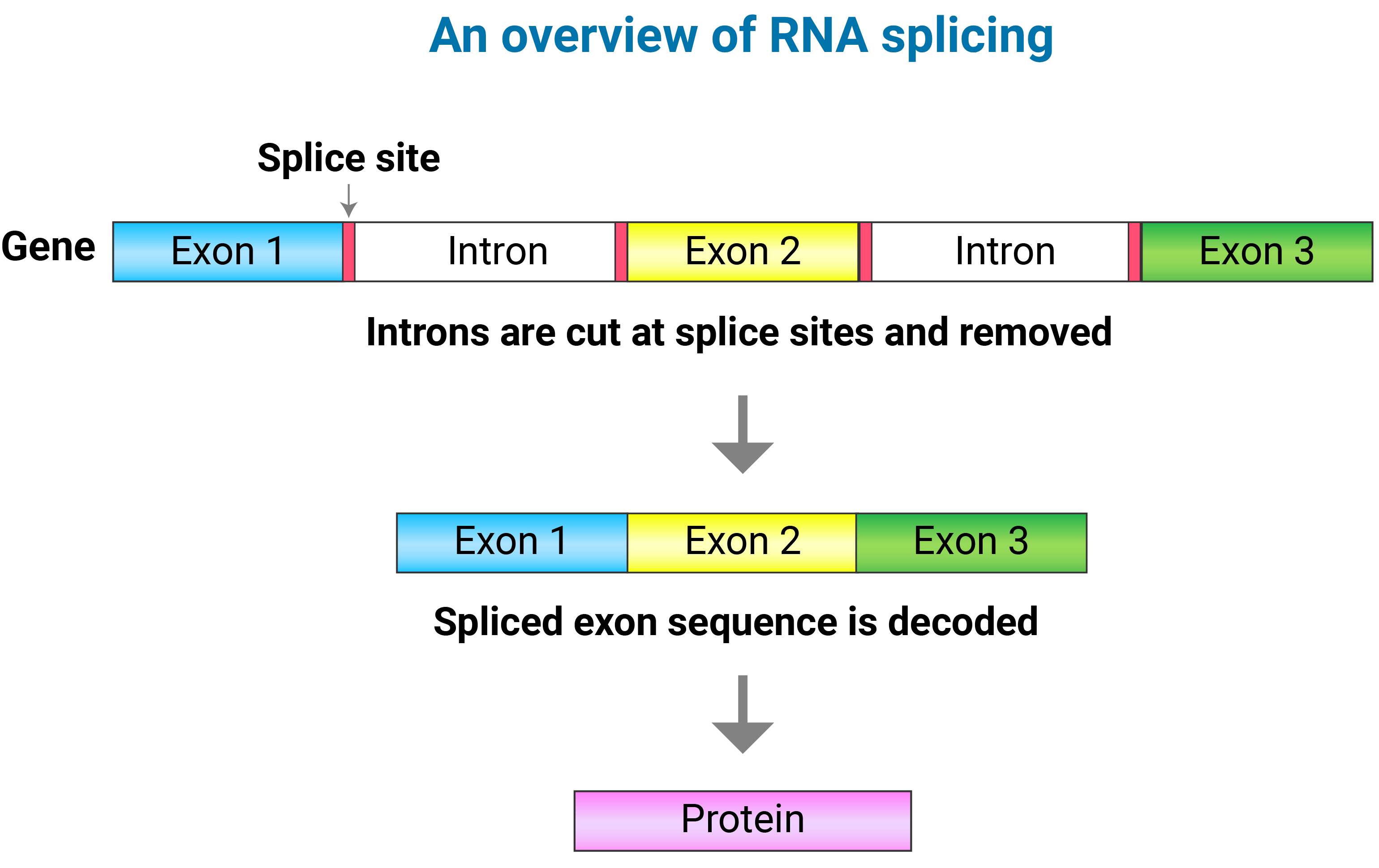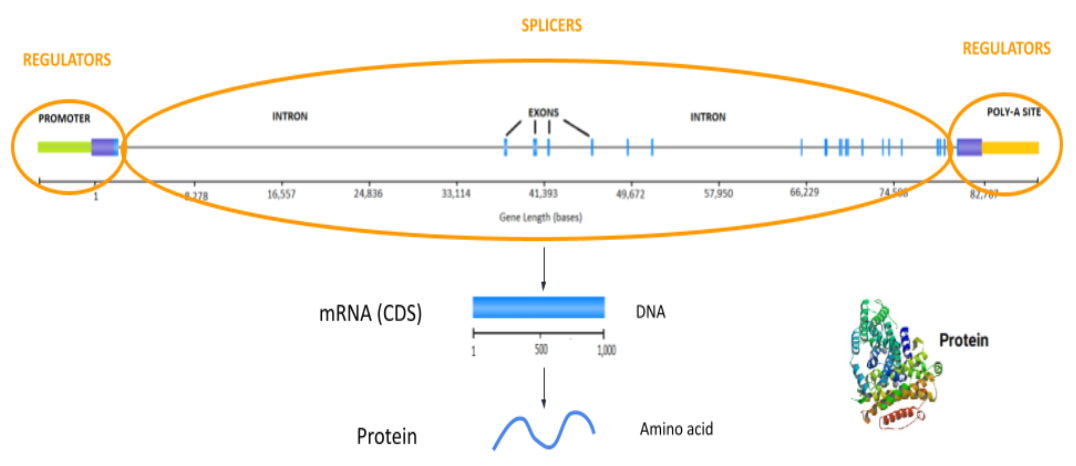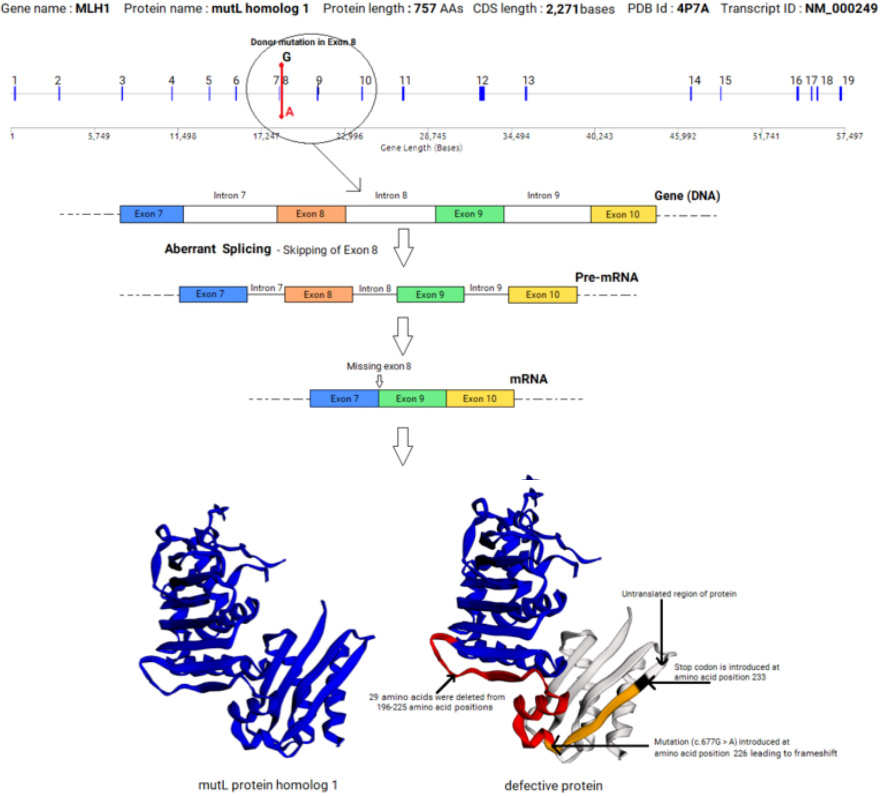Discovering disease-causing mutations
For many years, it was expected that the majority of disease-causing gene mutations would occur in the exons of genes, which code for proteins. However, in recent years, researchers have discovered that over 60% of disease-causing gene mutations occur in splice sites, which are involved in RNA splicing. As the majority of disease-causing mutations occur within splice sites, the ability to target splicing mutations is paramount for precision medicine.
The S&S algorithm is used to discover splice site mutations, and predict their consequences in disease-causing genes. The algorithm pinpoints the effects of splice site mutations such as exon skipping and cryptic splice site activation, all of which can lead to disease. Clinical and research institutions use the S&S algorithm to predict the effects of mutations found in real splice sites and cryptic splice sites, thereby uncovering the causes of numerous diseases.

OVER 60% OF DISEASE-CAUSING GENE MUTATIONS AFFECT THE SPLICING PROCESS
Genome Explorer®: A platform to discover disease-gene mutations with the S&S algorithm
Genome Explorer is a clinical genomics platform that incorporates the S&S algorithm and several additional algorithms developed by Genome International. It is fully automated by the touch of a button, and easy to use by clinicians to discover gene mutations in any disease.
Genome Explorer enables the discovery of gene mutations causing disease and drug response phenotypes in patients at the point of care. It also provides the ability to discover new genes and mutations that cause different diseases by the analysis of patient cohorts. Similarly, Genome Explorer allows researchers to find the drug response genes in clinical trials for personalized drug development.
Click here to learn about Genome Explorer.

The S&S algorithm has been used to identify disease-causing mutations in a variety of disorders, including
Cancer
- Breast Cancer
- Ovarian Cancer
- Colorectal Cancer
- Leukemia
- Head And Neck Cancers
- Prostate Cancer
- Retinoblastoma
- Squamous Cell Carcinoma
- Gastrointestinal Cancer
- Melanoma, Liver Cancer
- Lynch Syndrome
- Skin Cancer
- Neurofibromatosis
- Gastric Cancer
Non Cancer
- Diabetes
- Obesity
- Marfan Syndrome
- Hypertrophic Cardiomyopathy
- Muscular Dystrophy
- Beta-Ketothiolase Deficiency
- Bardet-Biedl Syndrome
- Neurological Disorders
- Eye Disorders
- Thyroid Disorders
- Neuro-Degenerative Diseases
- Liver Disorders
- Odontogenesis Diseases
- Inherited Retinal Diseases



